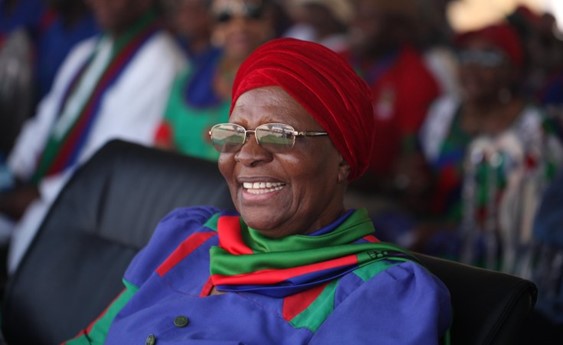Namibia has possibly seen better times since independence. The former territory of South West Africa now known as Namibia has recently held parliamentary and Presidential elections which saw the elevation of Netumbo Nandi-Ndaitwa of the incumbent South West Africa People’s Organization (SWAPO) to the Presidency in Windhoek. She will be the country’s first female President. In these elections 28000 ballots that were cast in the Presidential and National Assembly elections were rejected by the Electoral Commission of Namibia (ECN). It has been said that in the Presidential Election, 13004 votes out of 982 454 cast in 111 constituencies in the presidential vote were also declared null and void.
Political analyst Ndumba Kamwanyah says the number of invalid votes is of concern. “It undermines the efforts of voters and questions the effectiveness of voter education and the electoral process. This highlights the need for comprehensive civic and voter education to ensure citizens understand how to correctly cast their ballots,” he says. Kamwanyah says rejected votes are a result of ballot papers being improperly marked by voters before being placed in ballot boxes. “A spoiled vote occurs when a ballot is damaged or improperly marked before it is cast. It is not placed in the ballot box and is replaced with a new one. “A rejected vote, on the other hand, is cast but later disqualified during counting due to unclear or improper marking. “As for classification, votes are classified as spoiled or rejected based on specific criteria, such as illegible markings or multiple selections where only one is allowed,” he says.
The analyst says a high number of invalid votes may stem from systemic issues like unclear instructions, poorly designed ballots or insufficient voter education.
When we speak about improperly marking a ballot paper, we are referring to placing a tick rather than a cross on a ballot sheet. This makes the vote invalid. Such a large number of invalid votes endanger the legitimacy of the new president-elect. In such cases when these inconsistencies are brought to light educating people about the simplest process of voting should be made clear. Democracy should begin with education. Those who are at the helm of power should engage in enabling the younger generations in processes of how to vote. If invalid voting causes large scale national elections to lose their legitimacy, then the whole democratic process is thrown into doubt. There needs to a proper education by the ECN for the electorate particularly the young in how to vote. One of the reasons for the large number of invalid number of votes is a possible lack of educating school students about the process.
This means there needs to be a focus by the government and the electoral commission as well as the opposition on educating voters about the process as well as allowing another round of elections.
Namibia’s presidential and National Assembly elections this year have been historic on many fronts. They were the country’s most controversial elections, with accusations of foreign interference and election rigging at the forefront; while the country’s first female president was elected. The South West Africa People’s Organisation’s (Swapo’s) Netumbo Nandi-Ndaitwah was announced as the president-elect on Tuesday night, with 57.69% of the vote. The announcement was made at the Electoral Commission of Namibia’s (ECN’s) headquarters in Windhoek, but many parties were absent — contributing to a sombre mood. Multiple parties, including the incoming official opposition party, the Independent Patriots for Change (IPC), and the Landless People’s Movement (LPM) boycotted the announcement, as they do not recognise the election’s results.
Namibia could see mass unrest and public anger as well as dismay over how the election results have turned out. If there has been vote rigging as well as irregularities in the vote then these are warning signs thar a new election might have to be held again. Of course, this may not be so simple given that this can only perpetuate the loss of trust in the democratic process. Politics is changing across Southern Africa the people no longer wish for the same party to remain in power for long periods of time. Namibia is just the tip of the ice berg. Its democracy is undergoing a complex test at the moment. A test that its leadership under Ndaitwah needs to undergo with caution.
The political scene in Namibia needs to be watched carefully as it serves as a scenario of what can transpire in our own country.
Article written by:
Yacoob Cassim
Journalist at Radio Al Ansaar






